Posted by Elena del Valle on November 1, 2013
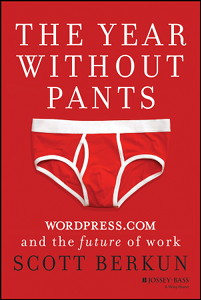
The Year Without Pants
Photos: Jossey-Bas
Scott Berkun, a Microsoft veteran with a corporate background who had authored four books, wondered whether he would follow his own advice if he were back in the workforce trenches. An opportunity to test his theory arrived when he was invited to lead a team of programmers at WordPress.com from 2010 to 2012. He agreed on condition that as a participatory journalism exercise he would write about his experience and the lessons he learned.
In The Year Without Pants and the Future of Work (Jossey-Bass, $26.95), he outlines the highlights of the experience as he saw them. He includes a behind the scenes look at Automattic, the firm he thinks drives WordPress.com’s success. The 258-page hardcover book published in 2013 is divided into 24 chapters.
His biggest challenge the author said by email was that “As an expert I had to put my expertise to the test, and find out: what of my own advice do I practice? And how will I adjust to a workplace with no email and no offices?”
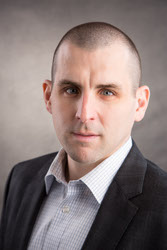
Scott Berkun, author, The Year Without Pants
Every month 396 million people view more than 14 billion pages in 120 languages at WordPress.com. As of this writing, there are 72 million blogs around the world; users produce 36 million new posts and 62 million comments per month, according to the company website. He believes other businesses can take advantage of the insights he gleaned first hand from working there.
“I learned the future of work can be wonderful if managers are willing to reevaluate what’s possible, based on the examples WordPress.com has provided,” he said when asked what was the biggest reward he received from the project.
In the book, he explores workplace issues at WordPress.com such as how he thinks the company’s decentralized workplace, relying on 170 employees in 70 different cities, is creative and productive. He draws attention to the company’s “culture of self-sufficiency and experimentation.”
And he considers how the use of blogs, chat and Skype in lieu of email to communicate make it efficient. It’s possible, he says in the final chapter, that technology companies like Automattic are returning work to its roots and away from the absurdity of work that exists in many white collar environments; and that they might return some of the meaning of work the business world has lost.

Click to buy The Year Without Pants
Comments:
Filed Under: Books
Posted by Elena del Valle on October 25, 2013
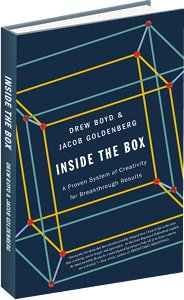
Inside the Box: A Proven System of Creativity for Breakthrough Results
Photos: Drew Boyd, Jacob Goldenberg
Innovation is likely when working in a familiar world with tools that foster our creativity, say Drew Boyd and Jacob Goldenberg. They’re convinced inventive methods follow common patterns or Systematic Inventive Thinking (SIT) in use, according to them, by hundreds of companies. They also believe creativity is a skill anyone can learn and perfect.
In Inside the Box: A Proven System of Creativity for Breakthrough Results (Simon & Schuster, $28.50), a 257-page hardcover book published this year, they outline their approach and the characteristics of SIT.
“Research has shown that just telling people to ‘think outside the box’ does not improve their creative output. It does not give people the cognitive instructions how to generate an idea,” said Goldenberg by email in response to the question of thinking outside versus inside the box. “Instead, it prompts people to stray far away from the problem in unconstrained ways. This is both inefficient and highly unlikely to generate a creative solution. On the other hand, research shows conclusively that constraining one’s thinking, inside the box, with fewer options and tight boundaries prompts far more creative output than unconstrained thinking. Limiting the brain’s options makes it work harder to find a creative solution.”
The book project took two years to complete while development of the SIT lasted four years, and the work in the field took more than 12 years, he explained. In the book, the authors discuss five problem solving techniques: Division, Subtraction, Multiplication, Task Unification and Attribute Dependency. By removing something that had previously been thought essential a product or service may be adapted for a new use, according to the Subtraction technique. By dividing a component out of an existing product or service that initially seemed not to function it may be possible to transform it into something productive, according to the Division tecnique.
In Multiplication, a part of a product is copied after being modified. Bringing tasks together into one component of a service or product is Task Unification. Usually the component had been previously thought to be unrelated to the task. When two or more attributes initially thought unrelated are brought together successfully there is Attribute Dependency, the authors say.
Rather than start with a problem and seek solutions they suggest the opposite. “Let me tell you a secret: consumers don’t care if the problem was defined first and then a solution was found, or the opposite way. All they care about is if they have a new solution to a meaningful problem,” said Goldenberg.
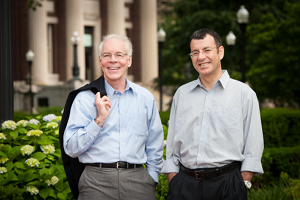
Drew Boyd and Jacob Goldenberg
“However, the latter direction is much more effective for creative (only creative) ideation. Psychology researcher Ronald Finke and his colleagues discovered that people hold inside their head an ambiguous, pre-inventive form the instant before generating an idea. People essentially start with a configuration in their head and then seek ways to make that configuration useful. They called it Function Follows Form. They also concluded that people are better at this direction of thinking. They are better at searching for benefits for a given configuration (starting with a solution) than they are finding the best configuration for a given benefit (starting with the problem). The method, SIT, structures your creative thought processes to first create these configurations in your head, and then it leads you to find a benefit for that configuration. Done properly, you end up with a creative idea.”
Boyd is executive director, Master of Science in Marketing Program, and assistant professor, marketing and innovation, University of Cincinnati. Prior to that he worked for Johnson & Johnson, United Airlines and was an officer in the United States Air Force. He dedicates his time to the fields of innovation, persuasion, and social media.
Goldenberg is professor, marketing, School of Business Administration, Hebrew University of Jerusalem, and visiting professor, Columbia Business School and the Interdisciplinary Center-Herzliya (IDC). His research focuses on creativity, new product development, diffusion of innovation, complexity in market dynamics, and social network effects. The company he established with his partners, which created the SIT system, works with more than one hundred companies worldwide, from the United States to Argentina to Kazakhstan.

Click to buy Inside the Box
Comments:
Filed Under: Books
Posted by Elena del Valle on October 11, 2013
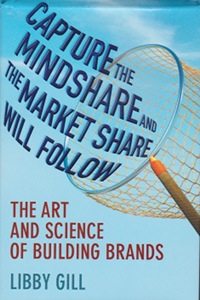
Capture the Mindshare and the Market Share Will Follow
Some people are brand loyal because they believe that those brands provide them with extraordinary value that cannot be acquired any other way. That is how Libby Gill, a Los Angeles management consultant, sees the relationship between consumers and brands. She says that the most successful brands are carefully built by people who are meticulous about getting certain things right.
In Capture the Mindshare and the Market Share Will Follow: The Art and Science of Building Brands (Palgrave MacMillan, $26), a 240-page hardcover book published this year, she explains her thinking. When she writes about mindshare she’s referring to the heads, trust, loyalty and hearts of a company’s customers.
In the book, she promises readers a blueprint for deep and lasting connections for executives, entrepreneurs, leaders and those who seek to influence, sell, persuade or attract customers. She defines branding as the ability to maintain an on going connection through awareness of value that drives others to act and create loyalty born of hope, trust and respect.
She describes seven elements she sees as necessary for the creation of the powerful company client relationships that generates customer loyalty and promotes economic success among successful brands. The elements are: Clarify Customer Benefits, Commit to Your Customer, Collaborate with Your Customer, Connect with Your Customer, Compete with Your Competition, Communicate with Confidence and Certainty, and Contribute to the Community.
An executive coach and branding expert with over 20 years of industry experience, Gill is the former head of communications and public relations for Sony, Universal, and Turner Broadcasting. Her clients include ABC-Disney, Nike, PayPal, Warner Brothers, and Wells Fargo. Her previous books are Traveling Hopefully: How to Lose Your Family Baggage and Jumpstart Your Life, and You Unstuck: Mastering the New Rules of Risk-taking in Work and Life.
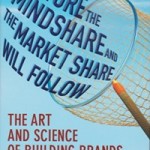
Click to buy Capture the Mindshare and the Market Share Will Follow
Comments:
Filed Under: Books
Posted by Elena del Valle on October 4, 2013

Your Bones book cover
Photos: Praktikos Books
Fifty-six million Americans suffer from bone disease or have low bone mass, according to National Osteoporosis Foundation (NOF) data released April 2013. The Foundation numbers point to 9 million adults in the United States estimated to have osteoporosis. Another 48 million have low bone mass (indicated by T-scores between -1.0 and -2.5), and are at increased risk for osteoporosis and broken bones, according to the Foundation’s study titled The 2010 Burden of Osteoporosis and Low Bone Mass among Residents of the U.S. Age 50 and Older.
Osteoporosis is held responsible for 1.5 million fractures a year costing sufferers of the silent condition pain, quality of life loss and in some cases eventually death. When there are catastrophic fractures as many as 20 percent of patients die, and 50 percent of survivors require long term nursing home care.
For years, doctors have prescribed potent medicines that they promised would alleviate or eliminate the problem. Lara Pizzorno, MA, LMT, managing editor, Longevity Medicine Review, and Jonathan V. Wright, MD, who holds degrees from Harvard and the University of Michigan, believe a natural path can lead to healthy bones. In Your Bones How You Can Prevent Osteopororosis & Have Strong Bones for Life-Naturally (Praktikos Books, $12), a 496-page soft cover updated and expanded edition published March 2013, they explain how readers can turn brittle bones strong.
Pizzorno, the lead author, and Wright start out by outlining why biophosphonate patent medicines should be the last alternative for osteoporosis patients; and how conventional medicine aggravates the problems it promises to solve with prescription medicines that are not naturally occurring. Next, they address the risk factors that may lead to osteoporosis and low bone mass, also known as osteopenia. The authors dedicate the remainder of the book to what they believe is the best way to achieve healthy, strong bones with nutrition and lifestyle adjustments.
In Chapter 7, for example, they outline the role of vitamins and minerals such as B, D, C, K and calcium, magnesium, zinc, strontium as well as studies to support their arguments. They address issues relevant to supplements and safety and provide examples of foods high in each of the vitamins and minerals. They also discuss the role of hormones, weights and exercises in bone building. The extensive book includes tables with listings of foods and their nutrient values, and appendices with information about bone lab tests and vitamins and minerals.
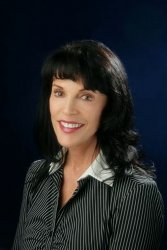
Lara Pizzorno, lead author, Your Bones
Pizzorno is co-author of Natural Medicine Instructions for Patients, and editor of The World’s Healthiest Foods: Essential Guide for the Healthiest Way of Eating. Wright, according to his bio, has been at the forefront of natural biomedical research and treatment since 1973. The authors live in the Seattle, Washington, area.

Click to buy Your Bones
Comments:
Filed Under: Books
Posted by Elena del Valle on September 27, 2013
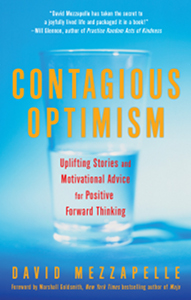
Contagious Optimism book cover
Photos: Cleis Press
Optimist David Mezzapelle believes his ability to anticipate good results before they take place is part of the secret to his success in life. He anticipates rewards or Life Carrots in challenging situations to help him overcome them and move forward.
In Contagious Optimism Uplifting Stories and Motivational Advice for Positive Forward Thinking (Viva Editions, $16.95) Mezzapelle and 65 others share stories, outcomes and advice meant to be uplifting.
The 405-page softcover book published this year is divided into eight sections: Talent; Goal Analysis; Turning Envy and Jealousy into Something Positive; Relationships; Business and Careers; Maturing and Staying Young-Health, Fitness and Relaxation; Need Help Getting Somewhere?; and You Have Arrived! At the end of each story there is a short summary of the take away concept within an easy to find box.
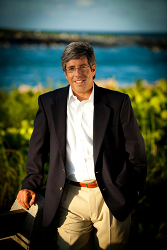
David Mezzapelle, editor, Contagious Optimism
Mezzapelle was the founder and director of marketing of Goliath Technology before it was sold in 2007. He launched JobsOver50.com. Today, he dedicates his time to consulting projects and serving on boards.
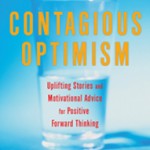
Click to buy Contagious Optimism
Comments:
Filed Under: Books
Posted by Elena del Valle on September 13, 2013

The Power of Latino Leadership book cover
Leadership specialist Juana Bordas thinks Latino leaders are powerful, distinctive, and offer lessons that can inform other leaders. In The Power of Latino Leadership Culture, Inclusion, and Contribution (Berrett-Koehler Publishers, $19.95) she strives to outline the principles and practices of how, she believes, Latinos lead.
The 261-page softcover book is divided into five main parts and thirteen chapters.
In the book, peppered liberally with Spanish language words, Bordas includes comments from a few politicians and nonprofit Latino leaders. She also shares sayings she hopes illustrate Latino culture, and even notes on how, in her opinion, the Spanish language itself influences and reflects the Latino worldview.
Bordas is president of Mestiza Leadership International. Prior to that she was vice president of the Greenleaf Center for Servant Leadership’s board, and trustee of the International Leadership Association.

Click to buy The Power of Latino Leadership
Comments:
Filed Under: Books
Posted by Elena del Valle on September 6, 2013
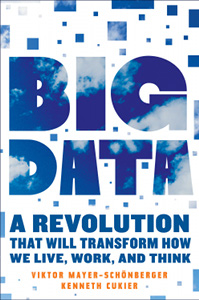
Big Data book cover
Photos: Houghton Mifflin Harcourt
The recent revelations of government surveillance of United States citizens electronic and phone communications via National Security Agency programs has brought the issue of data collection at a mass level to the foreground. Other government programs such as police department vehicles photographing random vehicles as they drive around and the United States Postal Service program that photographs all mail and opens some mail for inspection have come to light recently. Privacy advocates draw attention to the lack of regulations for the use and storage of all that data and the potential harmful effects and unintended consequences it might bring.
Add that to data the private sector gathers on its own employees and consumers for marketing and sales purposes, often without their knowledge, from public and private sources such as credit reports and social media pages and it’s enough for reasonable people to be wary. In Big Data A Revolution That Will Transform How We Live, Work, and Think Viktor Mayer-Schönberger and Kenneth Cukier (Eamon Dolan/Houghton Mifflin Harcourt, $27) suggest that big data gathering and analysis is transforming the way we see people and the world in a revolutionary way.
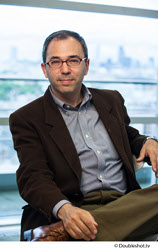
Kenneth Cukier, coauthor, Big Data
In the 242-page hardcover book, they share with readers insights on the interesting and alarming impact they believe electronic surveillance is having on our lives from business to government, science, safety and privacy, and how we think and view patterns and the world. From employee monitoring via GPS tracking to player scouting and the business search for efficiencies that drive profits big data is changing the way we do things.

Viktor Mayer-Schönberger, coauthor, Big Data
They point out that data compilation should be more than cold hard facts and information. There should be a space for human intuition, serendipity and common sense, they say; adding that “What is greatest about human beings is precisely what the algorithms and silicon chips don’t reveal…” because it can’t be captured in data.
The less glamorous worrisome side of data gathering concerns privacy in a setting in which notice to individuals, consent, opting out and anonymity are almost no longer possible, they point out. Between government surveillance and commercial tools like apps personal data is used, sold, and repurposed for use by others in ways that were not thought about when the data was gathered. Predicting consumer behavior based on data could lead to dangerous and even amoral uses.
Mayer-Schönberger is professor of Internet governance and regulation at the Oxford Internet Institute at Oxford University. Kenneth Cukier is data editor at The Economist.
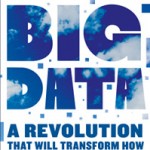
Click to buy Big Data
Comments:
Filed Under: Books
Posted by Elena del Valle on August 29, 2013
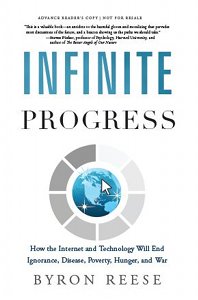
Infinite Progress book cover
Photos: Byron Reese
Our future is rosy. So much so that ignorance, disease, poverty, hunger and war will end thanks to technology and the Internet. The power of technology to transform our lives will be so profound as to usher in a new golden age. So believes Byron Reese founder of several high tech companies and head of research and development for another.
In his book, Infinite Progress: How the Internet and Technology Will End Ignorance, Disease, Poverty, Hunger, and War (Greenleaf Book Group, $25.95) he explains his thinking.
It took Reese six months to write the book, in the evenings. It was originally much longer, he explained by email.
“The book is aimed at a general audience. I suspect that optimists will be more inclined to read it than pessimists,” said the author in response to questions about the target audience for his book and the response he has had so far to the idea of a future golden area brought by technological advances. “People have responded enthusiastically. There are many people who want to believe in a better tomorrow, but the relentless negativity of the media has caused people to call it into doubt. I wrote the book as a case to defend the optimistic viewpoint.”
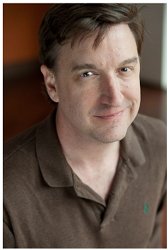
Byron Reese, author, Infinite Progress
The 295-page softcover book, published March 2013, is divided into an Introduction and seven sections: An Optimist’s Reasoning in Five Easy Premises, The End of Ignorance, The End of Disease, The End of Poverty, The End of Hunger, The End of War, and In Conclusion.
He says in the chapter about poverty that technology is able, without limits, to raise standard of living worldwide. Machines will do more of the labor that doesn’t require human capabilities, allowing people leisure time and abundance.
If we look at history, he says, technology and free enterprise will inevitably lead to wealth even for the poorest people in the world until poverty, as we define it today, ceases to exist. Reese is chief innovation officer at Demand Media in Austin, Texas.
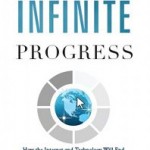
Click to buy Infinite Progress
Comments:
Filed Under: Books
Posted by Elena del Valle on August 9, 2013
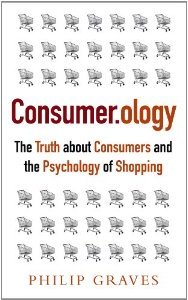
Consumer.ology cover
Photos: Nicholas Brealey Publishing
Our unconscious mind makes decisions without checking in with our conscious mind. So believes Philip Graves, a consumer behavior observer. It doesn’t always matter what we think we should do or anticipate we will do in a given situation if we’re asked in advance. Instead, what matters is what we actually do when the situation arises. Often the two conflict, according to Graves.
In Consumer.ology The Truth about Consumers and the Psychology of Shopping (Nicholas Brealey Publishing, $19.95), a 225-page softcover book published this year, Graves addresses consumer behavior as it relates to shopping.
He proposes that people’s psychological traits are more likely to determine their behavior in response to something new than whatever they might believe or respond when asked by a researcher. The unconscious mind and context mold our thoughts and behavior in unexpected ways, according to him.
For these reasons, in his view, market research is a waste of money, a false science. This is proven, according to him, because people frequently don’t do what they say they will do when responding to surveys and market researchers questions.
“It’s hard to generalise by sociodemographic groups and, often, not particularly helpful to do so: often it’s better to look at a type of behaviour and work back from there. That said, as a generalisation, I see men and women going about shopping in quite different ways sometimes,” Graves said by email when asked whether he has observed shopping trends by groups of people with common characteristics.
“Men are often more specific in their focus and less good at browsing to find what they want; they also tend to have a greater need to feel powerful in interactions with retailers (although, in the face of genuine product expertise this tends to go away). That said, I would say that more and more men are shopping in a way that was characteristically female a few years ago: enjoying browsing and using shopping as a leisure pursuit in its own right.”
In lieu of market research he suggests the AFECT approach (analysis of behavioral data, frame of mind, environment, covert study, and timeframe) for companies to evaluate the usefulness of consumer insight favors the method he believes “embraces a true awareness of the consumer decision-making process and how the subconscious mind drives shopping behavior.”
It took the author one year to research the book which was first published in 2010. Later he decided additions were necessary and spent a month on the extra content for the updated edition published in 2013. When asked about challenges and rewards of writing the book he said: “The biggest challenge I’ve had in presenting the issues from the book is when I run into people’s beliefs surrounding traditional market research. Rather than participate in a constructive debate or weigh up the evidence, some people who have been heavily involved in market research won’t consider the issue scientifically. I understand the psychology involved, but it still sometimes surprises me that people with so much to gain by reevaluating what they do aren’t willing to do so; after all, this is about their job, not their religion!
The biggest reward is, without doubt, the opportunities that having the book out there in the world have brought to me; opportunities to travel the world, meet fascinating people and explore their challenges with them. So far I’ve given talks at events in the UK, Brazil, Belgium, Germany and the US (including to the EU and UK Cabinet Office), become an associate of the UK’s leading economics consultancy, Frontier Economics, and joined the advisory board of Next IT, a US technology company that leads the market in intelligent virtual assistants. The joy for me comes where other people take my work and invite me to help them build on it through applying the principles to their business.”
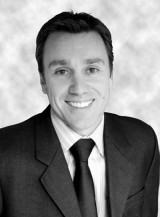
Philip Graves, author, Consumer.ology
To the question of whether it’s ethical to attempt to influence people’s unconscious minds without their realizing it he responds that all communication is intended to influence. Graves has twenty years of experience observing consumers, first as a traditional market researcher and later using psychoanalytical techniques. He has advised Comet, ITV, Whirlpool, Doc Martens, New Convent Garden Food Company, Camelot, Virgin Media, Hotpoint, Lloyds TSB, Pepsi, and HSBC.
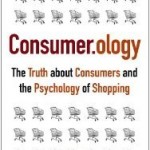
Click to buy Consumerology
Comments:
Filed Under: Books
Posted by Elena del Valle on August 2, 2013

Boxing for Cuba book cover
Photos: Fulcrum Books
In the 1950s, the Vidal Family like many in Cuba who saw the country spiraling downward, sent their three children to the United States in search of safety and a better future. Operation Peter Pan made that possible but instead of placing the brothers with relatives in Miami, as the Vidals had hoped, they were sent to the Sacred Heart Orphanage in Colorado for four years.
Guillermo Vicente Vidal, one of the boys, now an adult living in Denver, shares his and his family’s story in Boxing for Cuba An Immigrant’s Story (Fulcrum Books, $18.95). The 248-page softcover book first published in 2007 is divided into 14 chapters.
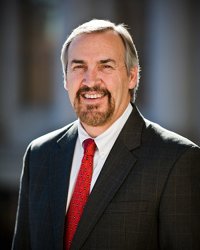
Bill Vidal, author, Boxing for Cuba
In the book, the author shares his best memories of his and his family’s immigrant journey toward a new life in the United States. Peppered among the pages, especially in the early chapters, are a few black and white photos of Vidal and his family.
Born in Camagüey, Cuba, Vidal grew up in Colorado. Following graduation from the University of Colorado, he held various government positions before becoming the city’s first immigrant born mayor. Vidal is now president and CEO of the Hispanic Chamber of Commerce of Metro Denver.

Click to buy Boxing for Cuba
Comments:
Filed Under: Books






































